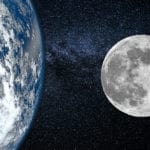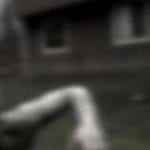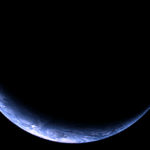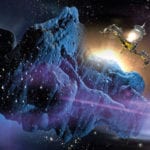 History
History  History
History  History
History 10 “Modern” Problems with Surprising Historical Analogs
 Health
Health 10 Everyday Activities That Secretly Alter Consciousness
 History
History Top 10 Historical Disasters Caused by Someone Calling in Sick
 Animals
Animals 10 New Shark Secrets That Recently Dropped
 Movies and TV
Movies and TV 10 Forgotten Realities of Early Live Television Broadcasts
 Technology
Technology 10 Stopgap Technologies That Became Industry Standards
 Weird Stuff
Weird Stuff 10 Wild Facts About Taxidermy That You Probably Didn’t Know
 Travel
Travel 10 Beautiful Travel Destinations (That Will Kill You)
 Miscellaneous
Miscellaneous 10 Modern Marriage Rituals Born from Corporate Branding
 History
History 10 Extreme Laws That Tried to Engineer Society
 History
History 10 “Modern” Problems with Surprising Historical Analogs
 Health
Health 10 Everyday Activities That Secretly Alter Consciousness
Who's Behind Listverse?

Jamie Frater
Head Editor
Jamie founded Listverse due to an insatiable desire to share fascinating, obscure, and bizarre facts. He has been a guest speaker on numerous national radio and television stations and is a five time published author.
More About Us History
History Top 10 Historical Disasters Caused by Someone Calling in Sick
 Animals
Animals 10 New Shark Secrets That Recently Dropped
 Movies and TV
Movies and TV 10 Forgotten Realities of Early Live Television Broadcasts
 Technology
Technology 10 Stopgap Technologies That Became Industry Standards
 Weird Stuff
Weird Stuff 10 Wild Facts About Taxidermy That You Probably Didn’t Know
 Travel
Travel 10 Beautiful Travel Destinations (That Will Kill You)
 Miscellaneous
Miscellaneous 10 Modern Marriage Rituals Born from Corporate Branding
10 Strange Reports About The Hollow Earth
History has provided us with numerous strange theories about the Earth. But none are as persistent as the theory that the Earth is hollow inside. Not only that, but this hollow space may be inhabited by people and animals.
It is easy to want to believe that there may be a utopian space within the Earth, a place where those of us who want to escape can live a more enlightened life. But the modern scientific facts do not support a hollow Earth.
Still, we can dream about a world within a world while accepting that some ideas surrounding the hollow Earth theory are totally out of this world.
10 Holes In The Poles
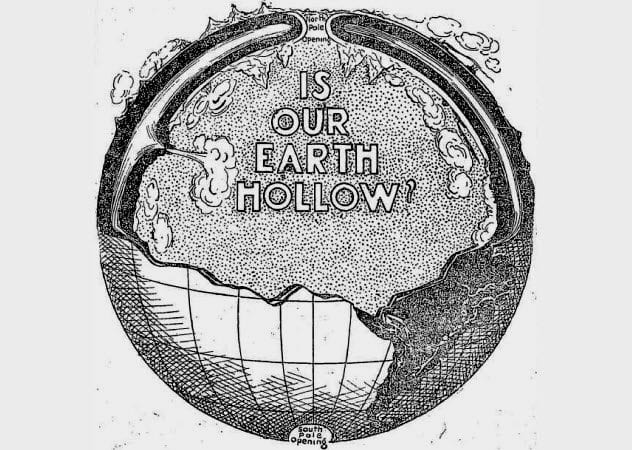
In 1906, William Reed published The Phantom of the Poles. In it, the author produced what he felt was solid proof that the Earth was actually hollow inside.
In a newspaper interview, Mr. Reed said that the hollow Earth theory was the “most natural way to account for the flattening of the Earth in the polar regions.” He believed that a hole ran clear through the poles. Reed added, “Sunlight which has passed through the hole . . . emerging amid the icebergs and snows, illuminates them like gems of living crystal.”
Mr. Reed’s book is now a classic among those who believe in the possibility of a hollow Earth.
9 Icebergs From Inside The Earth
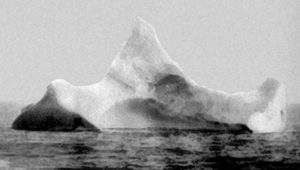
One of the more bizarre theories from hollow Earth believers was that icebergs come from the inner Earth. While it is hard to wrap one’s head around the idea, author William Reed claimed that the idea made perfect sense.
“Icebergs,” he told The Sunday Times, “are formed inside the Earth and come sailing out of the polar holes, passing round the edge and emerging in the ocean on the outside.”
By now, modern-day satellites would have seen such an awesome event unless a great scientific and government conspiracy has covered up the existence of another Earth inside the Earth.
8 Cellular Cosmogony
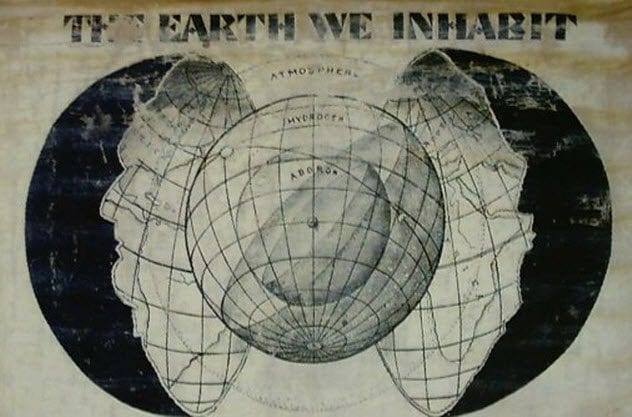
By 1908, newspapers around the world were discussing yet another hollow Earth theory. According to Dr. Cyrus R. Teed, we have been fooled by the scientists. We do not live on the outer surface of the planet Earth. In fact, the Earth is actually more like a cell and we are living inside it. This inner world is all that there is. Nothing exists outside our planetary cell.
The Sun is in the middle of the cell about 6,400 kilometers (4,000 mi) away from us. Three atmospheres surround the Sun, including one of hydrogen, so we can’t see the fiery orb itself. We merely see the local accumulation of the Sun’s energies, which are approximately 1,400 kilometers (900 mi) from us.
7 The Center Is Inhabited
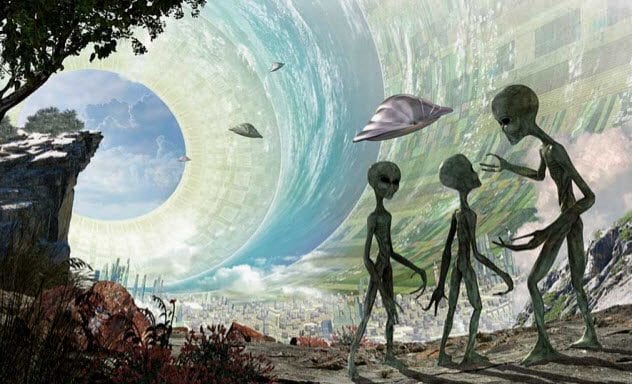
The idea of a hollow Earth was being discussed well before the 1900s. A newspaper article from 1884 announced that Americus Symmes was giving a lecture on his father’s hollow Earth theory.
His father, John Cleves Symmes Jr., had published a pamphlet in the early 1800s describing what it was like inside the Earth. John passed away in 1829, but Americus kept up with the alternative theory.
During the lecture, Americus gave the names of three men who had visited the inside of the Earth, met the people living there, and discussed the language and agriculture of the inner world.
6 Because Globes Are Hollow
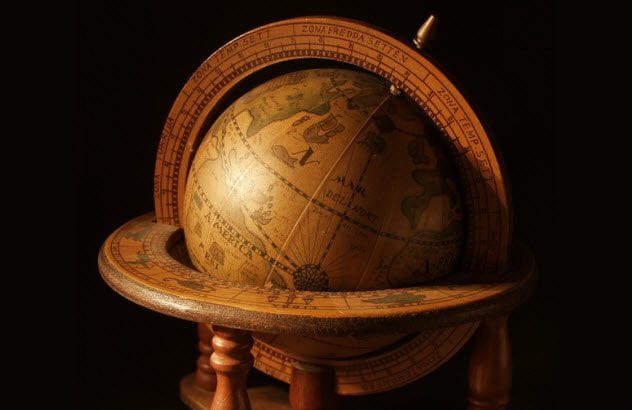
As the snootier scientists were snubbing the hollow Earth theories mentioned in the newspapers, some religious people were wrapping their beliefs around the possibility of a hollow Earth. In an article from 1893, a commentator openly stated that God does nothing in vain and that it would make little sense for the deity to create the Earth from a solid ball.
To drive his point home, the commentator asked, “Would not the animals on the Earth be more solid at their center than their circumference, instead of being strongly ribbed near the surface, so as to support the greatest pressure, leaving a cavity in the center capable of active operation?”
While the commentator might have had a working religious theory, he flubbed it all when he said: “Do not our globe makers understand that a hollow globe is preferable to a solid? If not, why do they make them hollow?”
5 A Solid Earth Is Too Heavy For Orbit
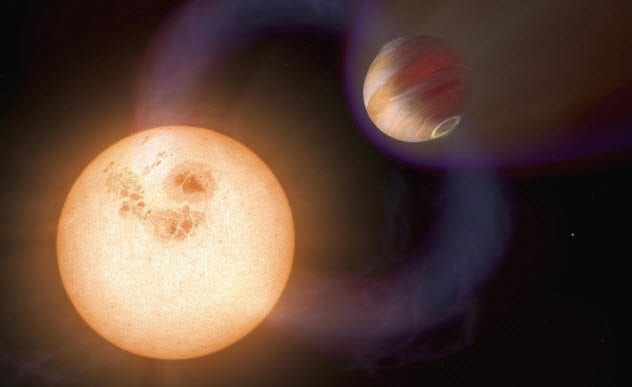
Many of the men speaking out in support of a hollow Earth felt that it was the only reasonable scientific conclusion as to how we remain in orbit around the Sun.
For example, George Ipson gave a lecture in 1905 on his alternative theories about the Earth. According to him, if the Earth was not hollow, it would not be able to “retain its position in ethereal space.”
Ipson also believed that there were large holes in the poles where sunlight entered and lit up the inner world. To get inside, he believed that all it would take was to “descend in the air carriage under the easy control of the operator and [then] one is in the desired place.”
4 Now The Aurora Borealis Makes Sense
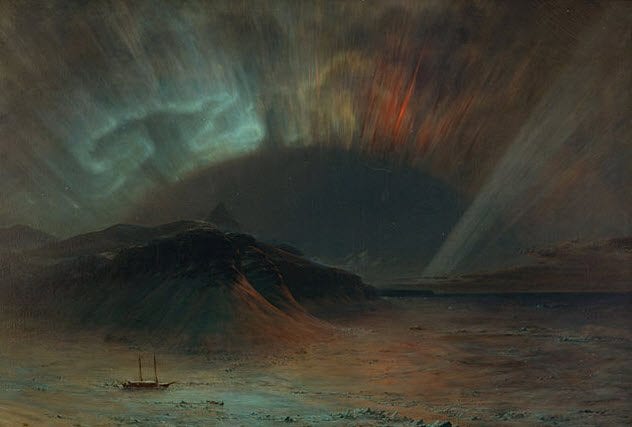
Some of the scientific theories that came out of the early 1900s were enough to make one’s head spin. For example, the origin of the aurora borealis.
According to hollow Earth theorists at that time, the aurora borealis was nothing more than “fires reflected from inside the Earth.” Since the inner Earth is full of crystals that reflect the light of the Sun into the hollow land, it would only make sense that the fires from the people inside Earth would reflect outward and up into the sky.
3 Germany Believed
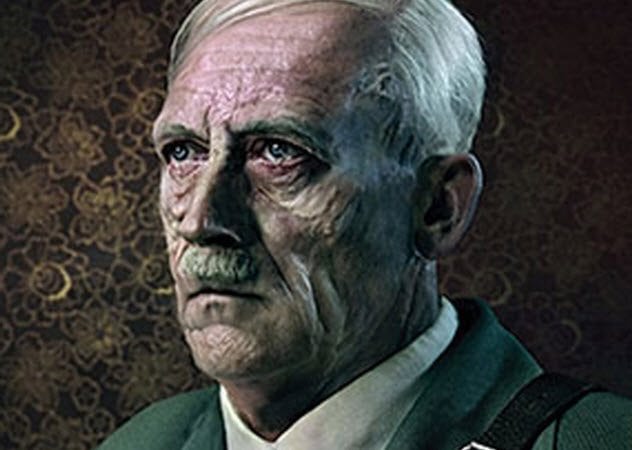
Not surprisingly, there are reports that Adolf Hitler and many other post–World War II Germans believed in the Hohlweltehre (“hollow Earth doctrine”). All sorts of crazy whispers on the Internet state that Hitler escaped to a hollow Earth and lived out his days in peace. The truth, however, may be that Hitler did not discount the possibility of an inner Earth.
A Sydney newspaper article from 1954 claimed that “Hitler adopted it, along with fortune-telling, astrology, and locating enemy ships by pendulum swing over a map.” Lumping the hollow Earth theory in with fortune-telling and astrology was a quick way to dismiss any validity to the theory.
2 Still Sought After
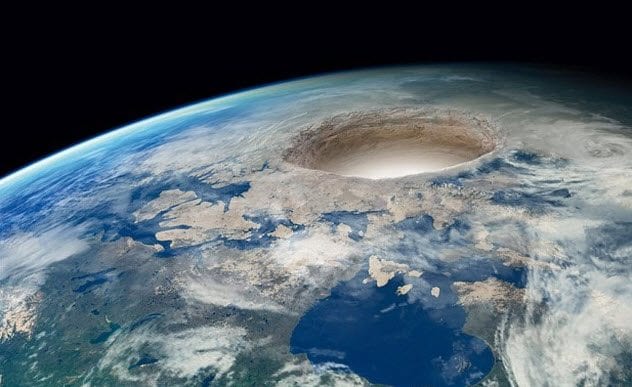
To this day, people continue to believe in the possibility of a hollow Earth. In 2002, Coast to Coast AM with Art Bell had a guest, Dallas Thompson, who had a near-death experience where knowledge came to him about the hollow Earth.
Thompson explained that he planned on making an expedition to the hole in the pole in 2003. But sometime after publishing Cosmic Manuscript, a book on his spiritual experience, Thompson disappeared.
Other believers in a hollow Earth have gone as far as moving to Alaska. Being closer to the North Pole, they hope to find the opening to the inner Earth.
1 Blame It On Halley
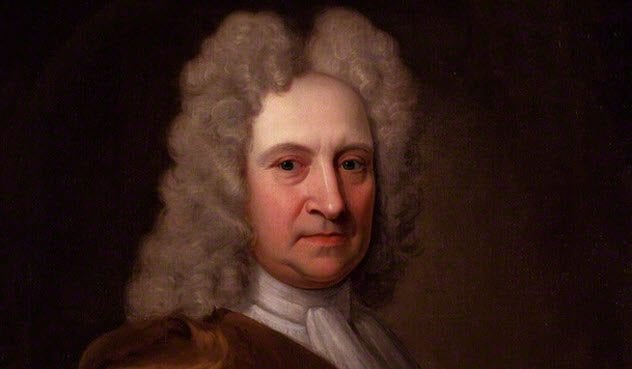
We can blame the hollow Earth theory on Edmond Halley, the astronomer who discovered Halley’s Comet. In 1672, Halley wrote a theory that the Earth was a series of shells. We live on the outer shell. Under the crust “comes a hollow space filled with air, then the next shell, another air space, another shell, more air, and finally the Earth’s core.”
Halley believed that the three air spaces were capable of supporting life and were lit up continuously by “luminous air.” He also believed that these inner Earths were inhabited by people and animals.
Elizabeth, a former Pennsylvania native, recently moved to the beautiful state of Massachusetts where she is currently involved in researching early American history. She writes and travels in her spare time.
